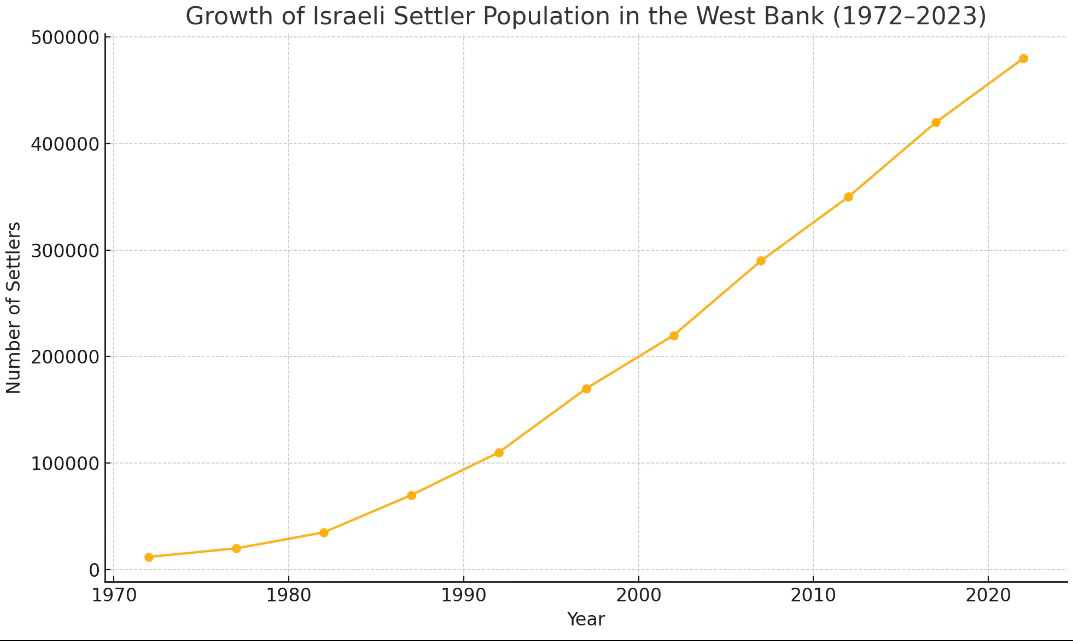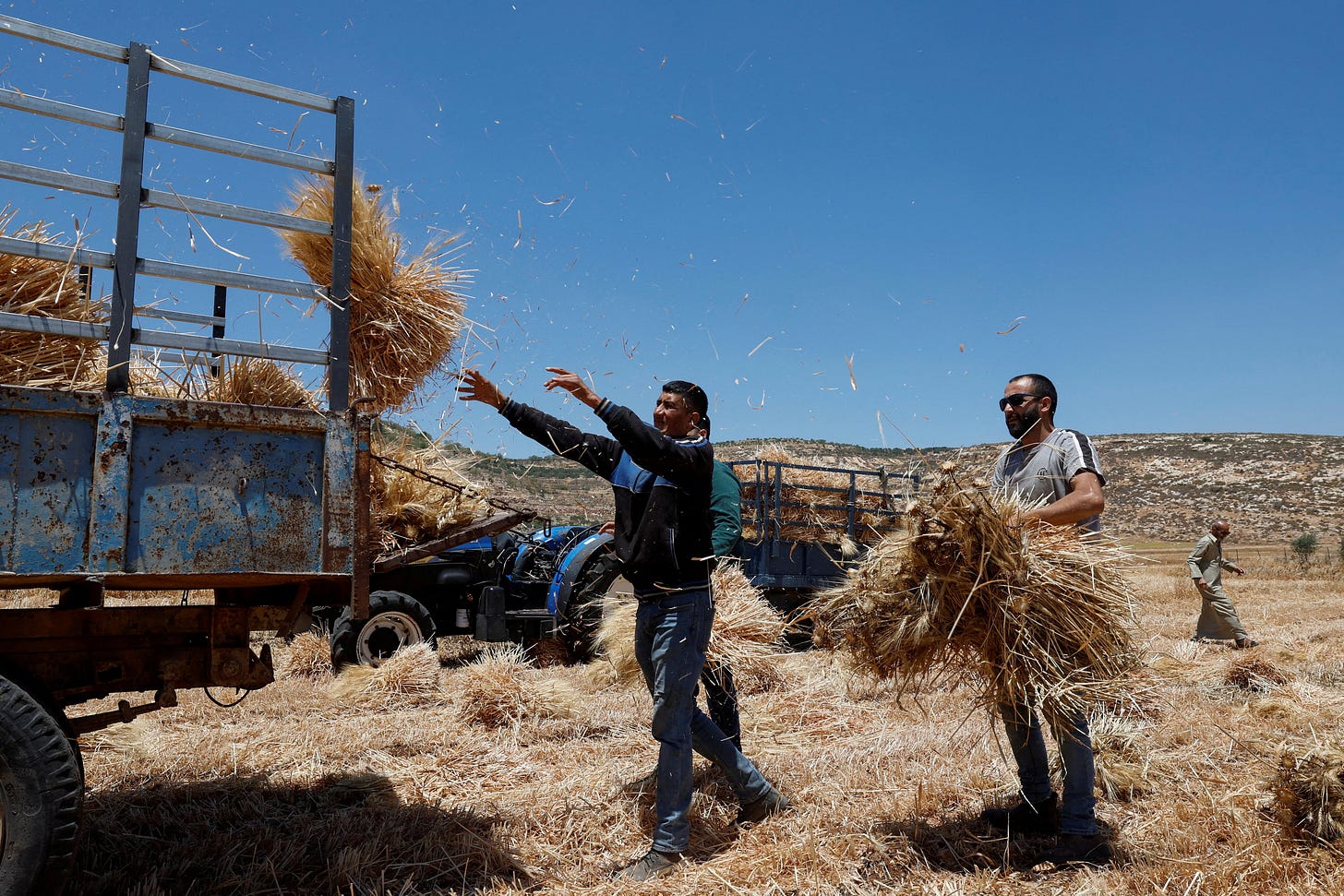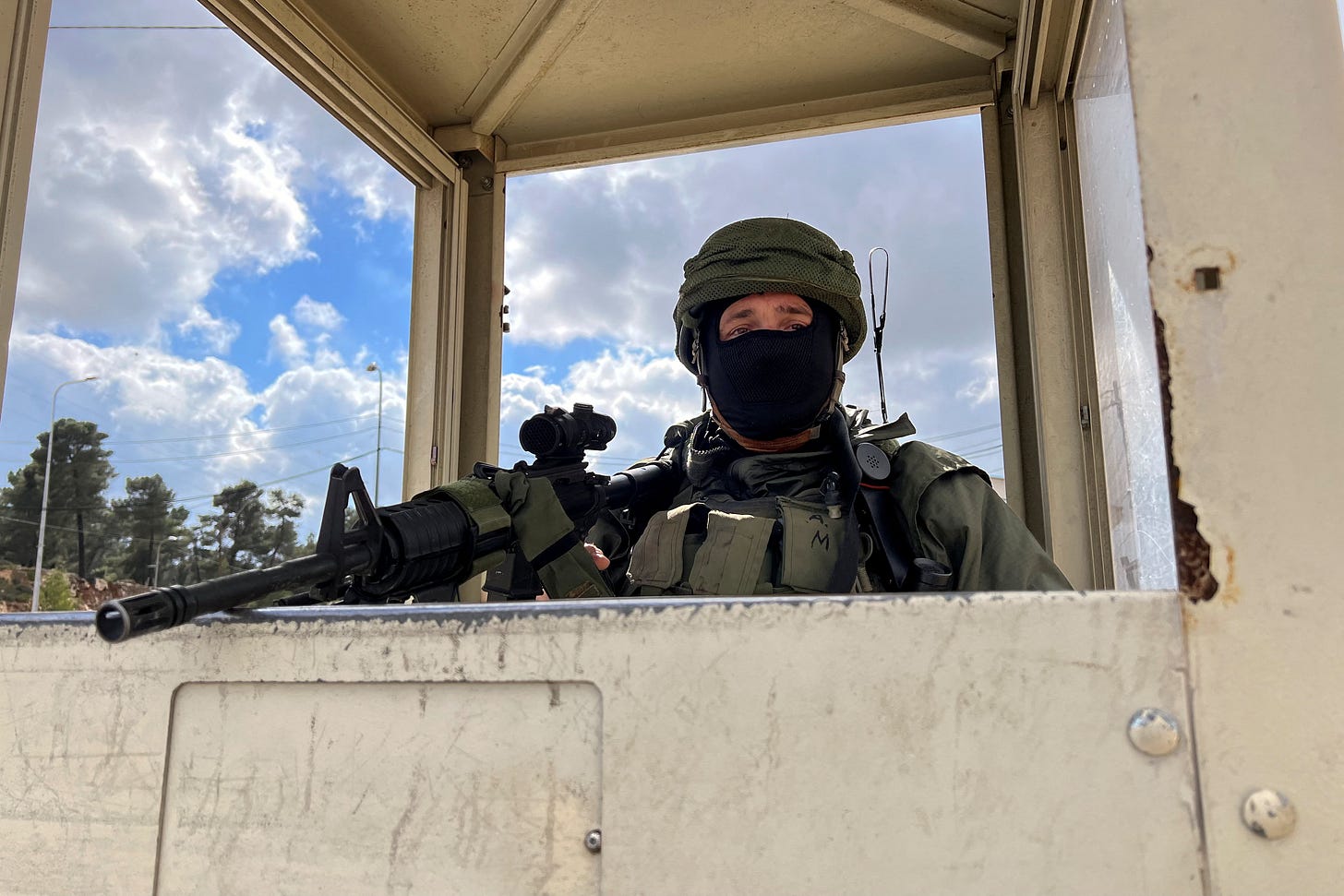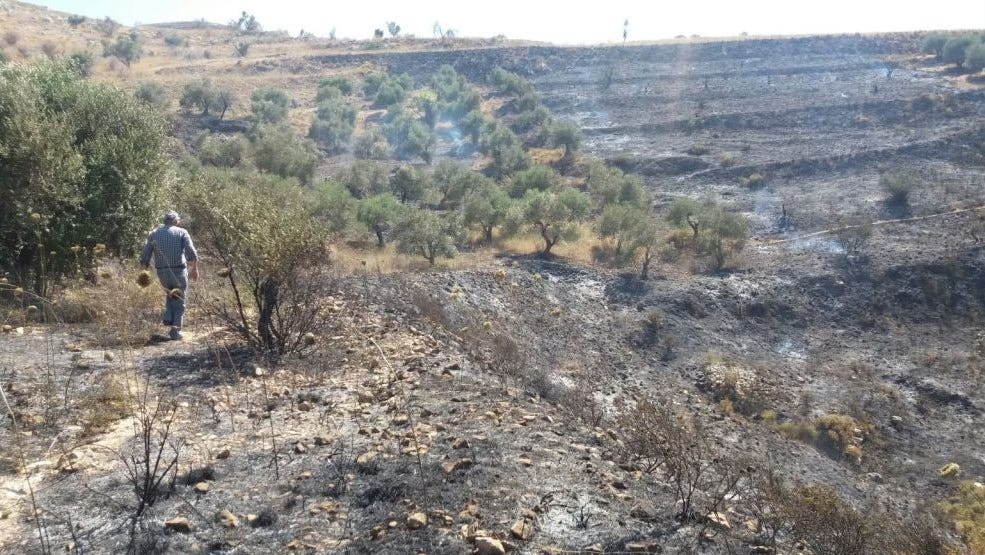Tension on the Hills: How West Bank Settlers Displace Palestinian Communities
The hills of the West Bank are dotted with red-roofed Israeli settlements, many guarded by military checkpoints and fences.
For many Palestinians living in nearby villages, these settlements represent more than political controversy - they embody a daily threat of displacement, violence, and a long-running erosion of their ability to remain on their ancestral land.
Israeli settlements in the West Bank - considered illegal under international law by the United Nations, though disputed by Israel - have grown significantly since the 1970s. Settlements are often established through a combination of government-sanctioned expansion and unauthorised outposts that later receive retroactive legalisation.
The process of acquiring land varies, but frequently involves declaring Palestinian land as “state land,” reviving Ottoman-era laws, or claiming that the land was abandoned. Palestinians, faced with a near-impossible burden of proof under Israeli military law, often lose these legal battles even when their families have lived on the land for generations. In other cases, Israeli settlers occupy land without formal legal status, supported by government or private funding, with retroactive approval granted later.
According to rights organisations like B’Tselem and Human Rights Watch, such policies amount to a systemic dispossession of Palestinians, contributing to the fragmentation of Palestinian territories and making a neighbouring Palestinian state increasingly unviable.
Beyond legal manoeuvres, violence plays a growing role in the displacement of Palestinians. In 2024 alone, the United Nations documented over 1,000 settler-related incidents involving violence or property damage against Palestinians - more than double the figures from five years ago.
Incidents include the torching of olive groves, destruction of homes, attacks on shepard’s and farmers, and even fatalities. In many cases, perpetrators are not prosecuted. Palestinian residents often report slow or no response from Israeli security forces. In some incidents, soldiers are accused of standing by or even assisting settlers during attacks.
On the outskirts of Nablus, 52-year-old farmer Mahmoud Hamdan says he no longer tends to his olive trees alone. “Last October, settlers came down from the hill at night, burned two of our trees, and smashed my cousin’s tractor. The army came the next day, took photos, and left. Nothing happened after that.”
The Israeli government, currently led by a right-wing coalition, has continued to approve thousands of new settlements housing units, while simultaneously demolishing Palestinian homes built without permits - permits that are exceedingly difficult for Palestinians to obtain.
Finance Minister Bezalel Smotrich, himself a settler leader, has argued that settlement expansion is a “natural right” and part of the Israel’s historical claims to Judea and Samaria - the biblical terms for the West Bank. In a controversial speech last year, he dismissed Palestinian historical presence in the region, saying “There is no such thing as a Palestinian people.”
The Israeli High Court has occasionally ordered the evacuation of outposts or halted evictions, but enforcement is inconsistent. International pressure - including from the EU and United States - has condemned violent settler activity, but critics say diplomatic response often falls short of meaningful consequences.
For Palestinians, the consequences are stark. Entire communities face the threat of eviction, with over 1,100 Palestinians displaced from their homes by settlers and military demolitions in 2024, according to the UN office for the Coordination of Humanitarian Affairs (OCHA).
In the South Hebron Hills, the village of Massager Yatta has become a symbol of resistance. After a decades-long legal battle, Israeli courts approved the eviction of over 1,000 residents to make way for a military training zone. While evictions have been delayed due to international outcry, villagers live in constant fear of bulldozers.
Still, many Palestinians refuse to leave. “This is my home,” said 16-year-old Aseel from the village of Tuba. “Even if they take our house, we will build again.”
The West Bank remains a landscape of enduring tension, where legality, ideology, and force intersect. While international law emphasises the rights of civilians under occupation, realities on the ground reveal a slow-motion annexation and a humanitarian toll that grows year by year. As settlements continue to expand, and violence escalates, the hope for a peaceful resolution seems increasingly distant - buried under concrete foundations and scorched olive trees.
This article is based on reports from local residents, human rights organisations, legal filings, and international observers. Names have been changed in some cases to ensure the safety of those interviewed.
Sources:
UN Security Council Resolution 2332
International Court of Justice Advisory Opinion 2004
Peace Now Settlement Watch Report
B’Tselem - The Israeli Information Centre for Human Rights in the Occupied Territories
Human Rights Watch Report 2020 - “Born without Civil Rights”









Good article. Israel is a settler colonialist state, stealing land from the people of Palestine. The IDF protects the thieves and thugs as they attack people's homes and crops. The world has to stand up and shout Free Palestine!